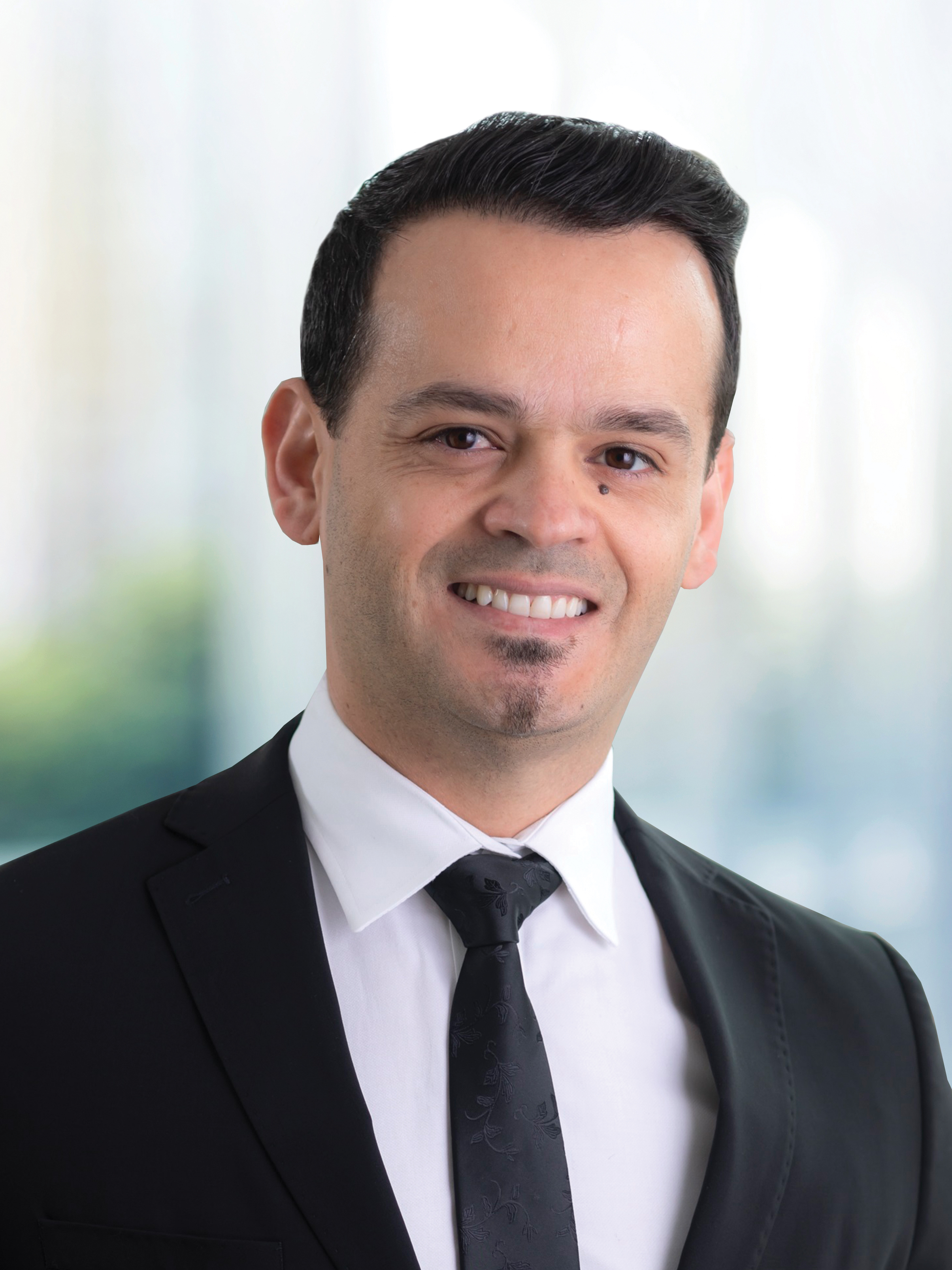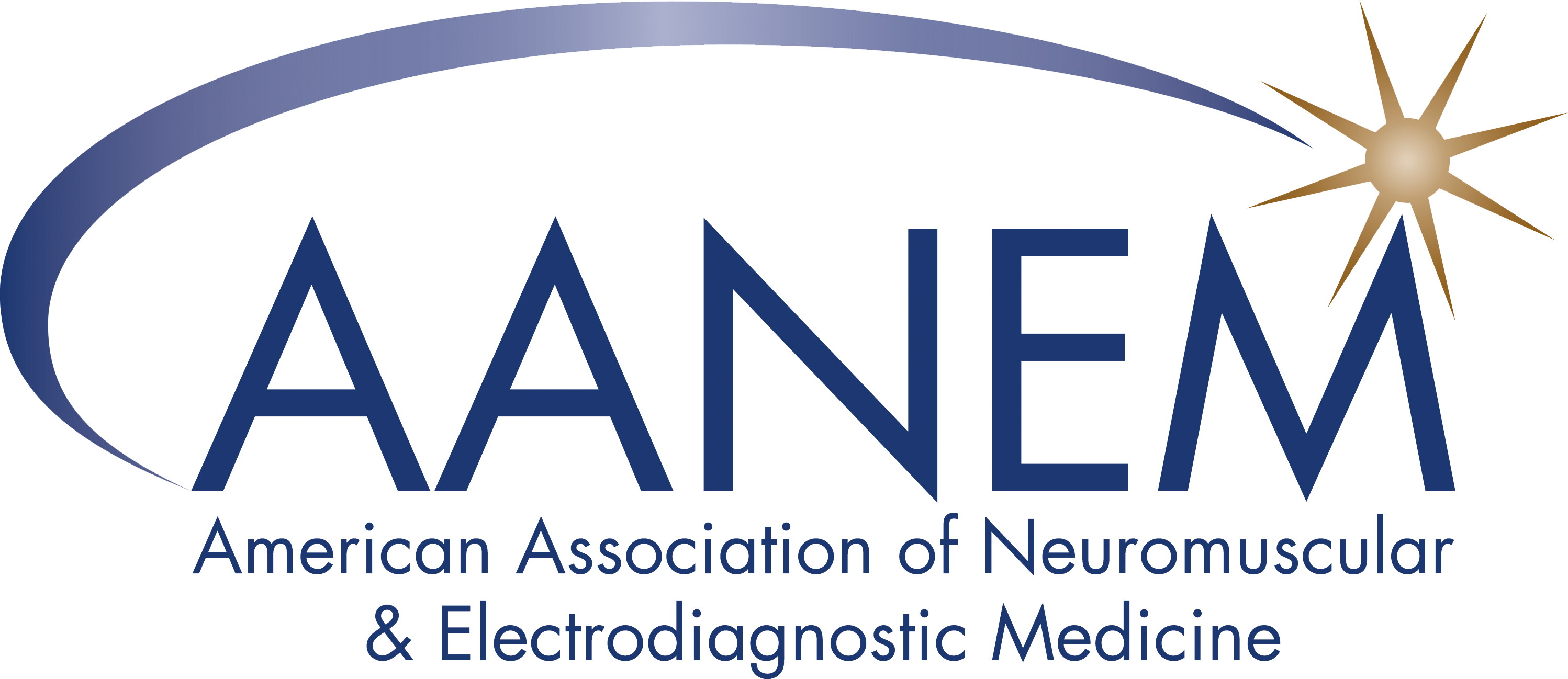Elie Naddaf, MD, Receives One of AANEM’s 2023 Scientific Impact Awards
Published August 02, 2023
 Elie Naddaf, MD, has been awarded one of AANEM’s 2023
Scientific Impact Awards for his significant contribution as
senior author of Survival and Associated Comorbidities in Inclusion
Body Myositis, which appeared in the September 2021 issue of
Rheumatology. Co-authors include Shahar Shelly, Jay Mandrekar,
Alanna M. Chamberlain, E. Matthew Hoffman, Floranne C. Ernst,
and Teerin Liewluck.
Elie Naddaf, MD, has been awarded one of AANEM’s 2023
Scientific Impact Awards for his significant contribution as
senior author of Survival and Associated Comorbidities in Inclusion
Body Myositis, which appeared in the September 2021 issue of
Rheumatology. Co-authors include Shahar Shelly, Jay Mandrekar,
Alanna M. Chamberlain, E. Matthew Hoffman, Floranne C. Ernst,
and Teerin Liewluck.
This article is highly relevant to physicians as it sheds light on the prognosis of patients with IBM and identifies the complications and comorbidities associated with the disease.
Dr. Naddaf ’s study revealed that patients with IBM were more likely to have Sjogren syndrome, peripheral neuropathy, and T-cell large granular lymphocytic leukemia than the general population. Dementia, Parkinsonism, and solid cancers were not more frequent in IBM. The study also demonstrated that IBM is associated with increased mortality, with a 36% survival at 10 years compared to 59% in population controls. Dr. Naddaf noted the most surprising finding was that patients with IBM treated with corticosteroids probably had worse survival than those who did not receive steroids. Overall, these conclusions provide valuable insights to clinicians involved in the diagnosis and treatment of IBM, aiding in patient management and improving outcomes.
Dr. Naddaf is currently working as a neurologist specializing in NM disease and pursuing a master’s degree in clinical and transitional science, concentrated on clinical trial design through the Mayo Graduate School. His primary research interests lie in IBM and mitochondrial disorders. Other disorders of interest include less common immune-mediated NM diseases such as paraproteinemic disorders, sporadic late-onset nemaline myopathy, and graft versus-host disease myositis. He is also interested in clinical-EMG-histopathology correlation, long term outcomes, and simplifying complex clinical syndrome.
Looking towards the future, Dr. Naddaf hopes to become a well established clinical and translational researcher, help develop new treatments based on sound and solid understanding of underlying disease mechanisms, and design robust clinical trials to test the effectiveness of such treatments in a timely manner. He also believes collaboration between clinicians, basic scientists, and patients is key to advance the field and develop clinically meaningful treatments. “My goal is to be a part of a collaborative multidisciplinary network spanning multiple institutions and countries, where we all learn from each other and help advance the field.”
Dr. Naddaf is encouraged by the progress and opportunities available in the field. “The fields of NM and EDX medicine are moving very fast. Lately, we had more new treatments than ever approved for various inherited, immune-mediated and degenerative NM disorders. This is very encouraging for patients, physicians, and researchers, and it will likely continue in the near future,” he said. “Challenges that should be addressed in future research include comparing the effectiveness among these drugs, identifying subgroups of patients that would benefit from a certain treatment, invest in understanding disease mechanisms in order to develop more clinically-meaningful treatments, and speed up the development of validated, disease-specific outcome measures.”
To aspiring researchers, Dr. Naddaf shared practices that personally guide his research. He said, “Only execute research projects you feel excited about and can’t wait to see the results of your data analysis, always have (a) well-defined question(s) or hypothesis you’d like to test in your project, and invest time in reviewing the literature in detail beforehand.”
Dr. Naddaf completed a neurology residency at the University of Wisconsin Hospitals and Clinics in Madison, followed by a fellowship in NM medicine at Mayo Clinic in Rochester, Minnesota. It was during his residency that he discovered his passion for NM medicine. “I was exposed to all kinds of subspecialties. On an intellectual level, I found NM to be the most intriguing. I also found interpreting NM ancillary tests such as EMG and biopsies very enjoyable. It is a subspecialty that requires ongoing effort to continue improving my knowledge and skills. Furthermore, unlike the inpatient setting, having an outpatient-based practice allows longitudinal relationships with patients, which I highly cherish. Lastly, in my opinion, NM and EDX medicine offers greater life-work balance than other neurology subspecialties,” he said.
Dr. Naddaf has been a member of AANEM since 2014 and currently serves as the chair for the Podcast Editorial Board. He believes AANEM, as well as the American Neuromuscular Foundation (ANF), play a vital role in supporting researchers. “AANEM is a major platform for NM and EDX education via the annual meeting, online educational materials, podcasts, and other educational opportunities. It also offers a nurturing, friendly environment for researchers, especially early-career ones, to present their work and receive constructive nonjudgmental feedback from experts in the field. ANF, which uses 100% of donations to support researchers, also plays a major role advocating for and advancing NM medicine research,” he said. “All of these avenues have benefited my professional career throughout the years, and I was fortunate enough to receive a career development grant from the ANF that helped me start my translational research journey.”
Dr. Naddaf expressed tremendous gratitude for the award and said that receiving the Scientific Impact Award validates the effort and time he invested in the project. “I feel honored, grateful, and very happy to receive this recognition from AANEM. On a professional level, it always feels rewarding when you know someone read your publication, let alone to receive a Scientific Impact Award for it. It validates all the effort and time you put into a project helped advance the field, even by a small step. The award is also of higher academic value coming from the ‘Home of Electrodiagnostic and Neuromuscular Medicine.’”
Personally, the award serves as a significant source of motivation and reinforcement for his research endeavors. He added, “On a personal level, I’ve considered AANEM like a family since I was a trainee. This award only adds to my admiration, appreciation, and commitment to AANEM. We are taught that in order to fight burnout, it is important to boost our ‘rewarding hormones’ via simple activities such as completing a great gym workout or eating a delicious meal. This award will definitely have a longer lasting booster effect that I’ll use to further propel my research.”
Dr. Naddaf extends his thanks to the AANEM Board of Directors and Awards Committee for selecting his publication and acknowledges the colleagues in neurology, rheumatology, biostatistics, and Rochester Epidemiologic Project who contributed to the project.
